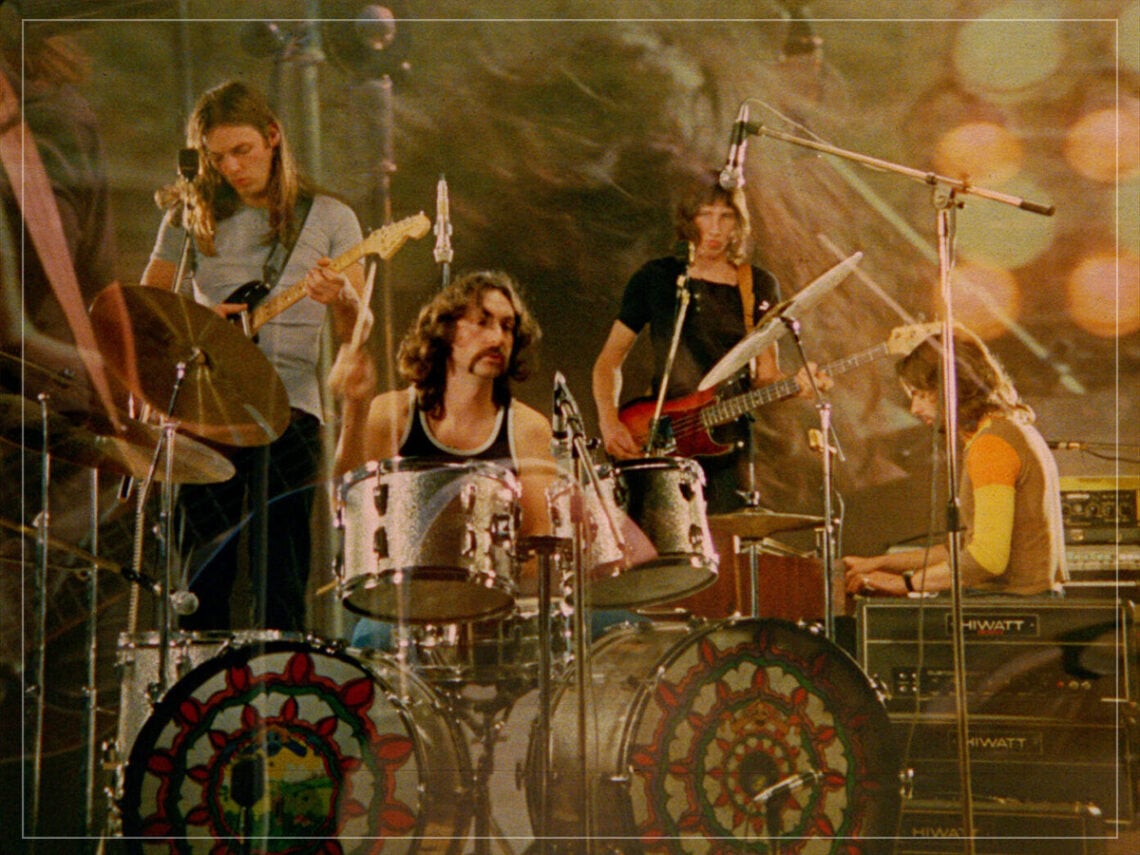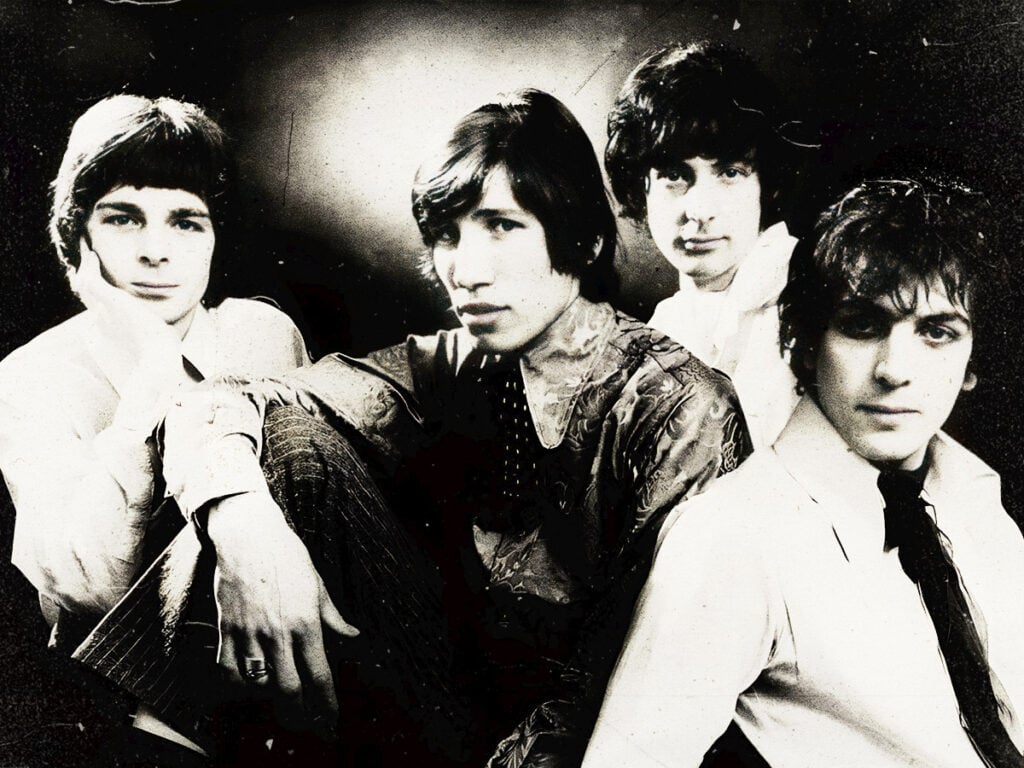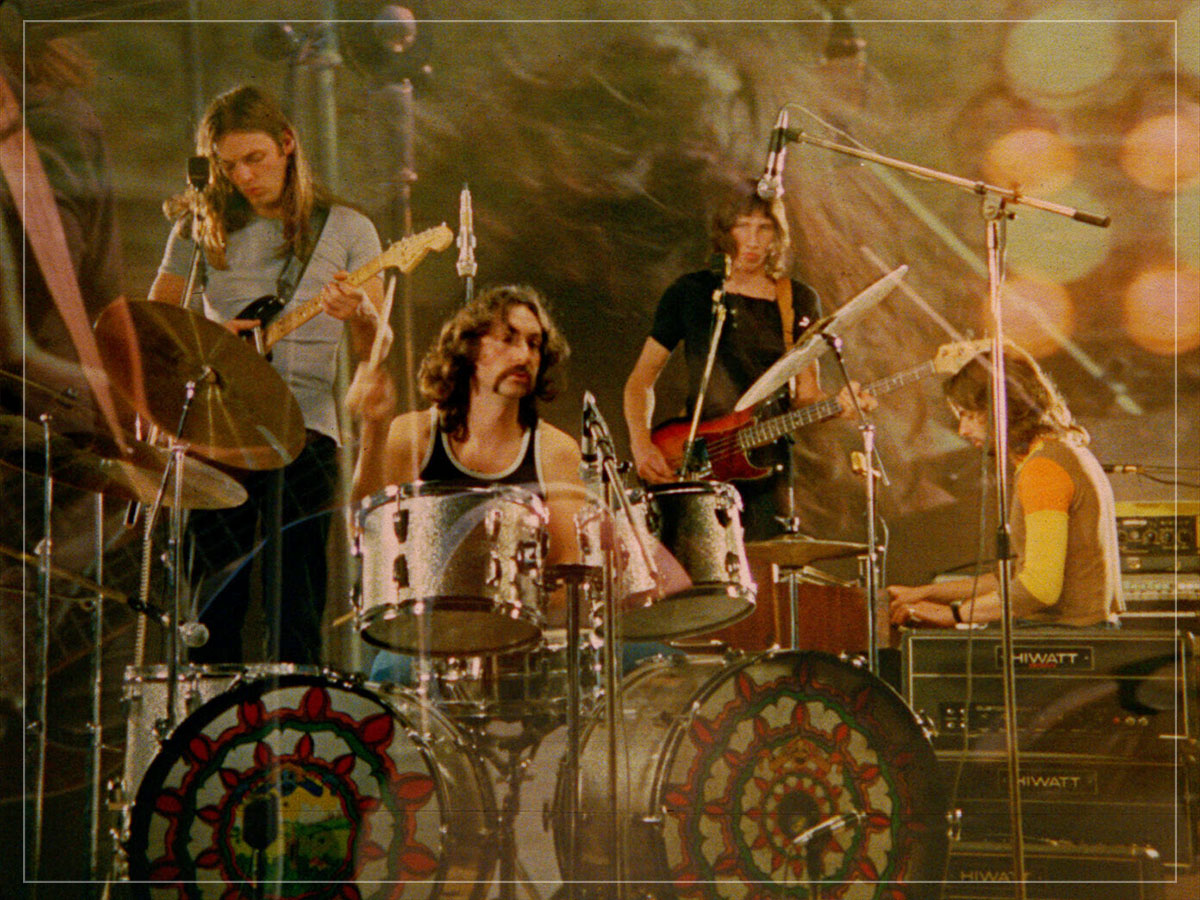
(Credits: Far Out / Sony Music)
Fri 5 September 2025 23:00, UK
Pink Floyd contained multitudes.
They were a band whose music could be some of the most peaceful and serene of the entire 1970s rock scene, or it could consist of Roger Waters hollering at you about how not eating your meat means you don’t get pudding. It could also consist of everything in between and more, especially if you caught them during one of their legendary live shows. All this would lead one to assume that there was some chemistry and trust between the bandmates. This is only half right.
The truth was that, pretty much from the moment Syd Barrett had to be relieved of his Floydian duties and be replaced by David Gilmour, the members of the band were on a collision course with each other that absolutely nothing could be done about. Waters immediately set about taking control of the band in the absence of Barrett, and the truth is, this wasn’t entirely a bad decision. No decision that directly leads to the creation of The Dark Side Of The Moon, Wish You Were Here, and The Wall can be.
However, there was one glaring problem with the way Waters went about taking control of the band. He either forgot or purposely ignored that there were other members of the band who may have had decent creative ideas, too. Instead, he treated the likes of Gilmour, keys player Richard Wright and drummer Nick Mason more or less as particularly dextrous animatronics that he could program at a whim. Turns out this wasn’t a great idea.
It didn’t begin like this. Word is that while the atmosphere in Pink Floyd was never entirely free of behind-the-scenes resentment and petulance, there was enough collaboration in the early 1970s that people were willing to put up with Waters being a control freak. Then The Wall happened. Pretty much from the beginning, Waters treated it like his own solo record, and that’s when the vibes moved from tense to outright horrific. That’s when questions started being asked about whether staying in one of the biggest bands on the planet was worth putting up with Roger Waters.
 (Credits: Far Out / Alamy)Who left Pink Floyd at this time?
(Credits: Far Out / Alamy)Who left Pink Floyd at this time?
Most famously, Wright was the first on the chopping block. Of course, the reasons why lead to a whole lot of “he said, she said” about what went on in the studio. According to Waters, Wright wasn’t contributing anything of note. According to Wright, he was having his ideas dismissed out of hand by Waters, who wasn’t listening to anyone but himself. The truth is probably somewhere in the middle, especially because, thanks to an interview conducted with Mojo, we have a third party’s take on the disagreement.
The interviewer tells Gilmour that, according to Waters, he was just as willing to sack Wright as anyone else, which Gilmour takes umbrage with. With a sigh, he said, “I did not go along with it. I went out to dinner with Rick… and said if he wanted to stay in the band, I would support him in that. I did point out to Rick that he hadn’t contributed anything of any value whatsoever to the album and that I was not over-happy with him myself, but his position in the band to me was sacrosanct.”
This is directly contradicted by Waters, who drops the bombshell that Wright wasn’t the only member of Floyd that Gilmour wanted out of the band. Seemingly as a response to Gilmour coming across as the band protector, Waters says, “I had a meeting with Dave in my garden in the South of France at which Dave said, ‘Let’s get rid of Nick too.’ I bet he doesn’t remember that. How inconvenient would that be? I went, ‘Ooh, Dave, Nick’s my friend. Steady!’”
Did all of this happen? All we have to go on are the words of a bunch of egomaniac prima donnas who were probably high when all of this happened. Waters’ assertion that Gilmour wanted Mason gone from Pink Floyd, too, does smack of Rog trying to do some damage control, but it is possible. It really does sound like no one was at their best during the making of The Wall, but at the very least, we got some classic albums out of it. Probably best to focus on that.
Related Topics

